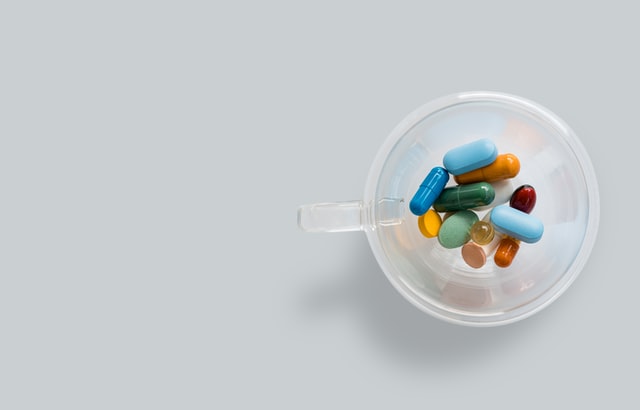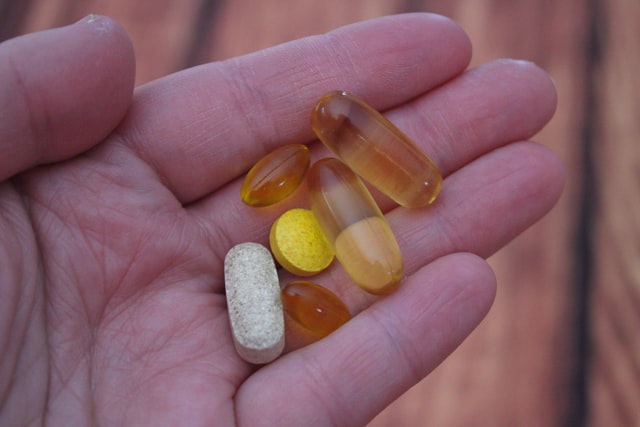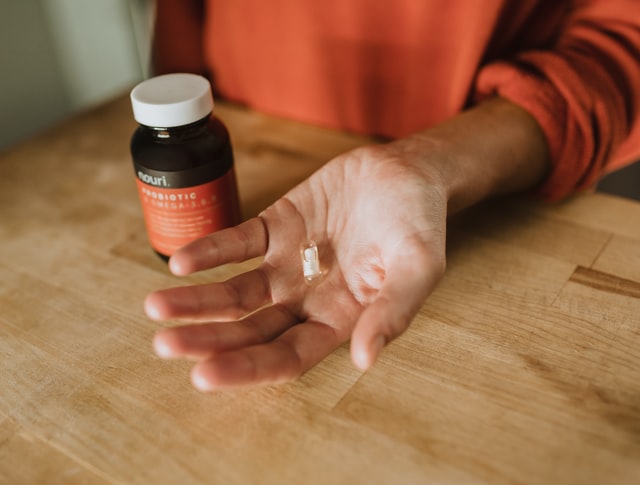
While it is known that nothing can replace a complete diet in order to obtain the Vitamins and nutrients, supplements may be helpful. However, it is not known how the supplements work within the body.
Contents
It is not known if they work in the same way as food or if they only do a partial bit of benefits. Supplements are meant to fill in the blanks when our bodies are missing nutrients or vitamins, but again, research done is only research. It cannot be determined in a definitive manner if the supplement works the same as actual food would.
Vitamin B 12 is an essential vitamin that is found in meats, dairy and fish. However, Vitamin B 12 can also be produced in a factory. The body requires Vitamin B 12 for the function and development of many parts of the body. This includes the brain, blood cells and nerves.
Vitamin B 12 has also been shown to be beneficial for many purposes in the human body. Vitamin B 12 is said to help Canker sores, Cataracts, cyanide poisoning, Alzheimer’s, osteoporosis and even fatigue.
However, there is no proof of the benefits given by Vitamin B 12 to any of these issues. There is not enough Scientific research done to show what benefits there are to Vitamin B 12 and how, if at all, Vitamin B 12 can help.
Do you have a Vitamin B 12 deficiency?

The symptoms of a Vitamin B 12 deficiency may be quite subtle and not fully noticed right away. Some of the early signs, that may or may not show themselves include:
- Feeling of always being tired
- General feeling of weakness
- Loss of Appetite
- Weight loss
- Constipation
While these may all seem like minor issues to have, over time, they could lead to serious issues.
Vegetarians and vegans may find themselves at a greater risk of Vitamin B 12 deficiency. The Vitamin is generally found in meat, dairy and fish. None of which are in the diet of a vegan, or vegetarian.
Besides metformin, there are some medications that may make it more difficult for your body to absorb Vitamin B 12. These include medications for acid reflux and the aforementioned Metformin.
When patients are diagnosed with Diabetes, they should be placed on a supplement to help replace the Vitamin B 12 that the Metformin removes. There should also be routine testing of Vitamin B 12 levels completed.
Too low of Vitamin B 12 can lead to serious health complications up to and including seizures, loss of mobility, depression, delusions and possibly memory loss.
Your physician will discuss with you the suggested levels of Vitamin B 12 that people should
Have in their systems. The amounts may vary by age and possibly other factors.
The best way to obtain adequate amounts of B 12 is by eating those foods that are rich in Vitamin.
Supplements that can impact blood sugar

There are some supplements that when taken by Diabetic Type 2 patients, that may have some unwelcome or even dangerous side effects. Some of the supplements can interact with medications that a person is taking on a daily basis. Some ingredients in the supplements could intensify the effects of your diabetic medications. This could result in hypoglycemia, which is low blood sugar. Some ingredients could have the exact opposite effect and cause an increase in blood sugar resulting in Hyperglycemia.
There is not enough definitive research that has been done on supplements and Diabetes Type 2. All patients should speak with their Medical Professional team in regards to using supplements. These are the four supplements that there is not enough research done with.
Chromium: A chromium deficiency could lead to high blood sugar levels. It is possible that it may help if you have a deficiency of chromium. However, a deficiency of Chromium is very rare.
Vitamin E and St. John’s Wort: Both the Vitamin and the St. John’s Wort herb can have negative impacts on the patient if the patient is using blood-thinning medication. Blood thinners are medications that are used to treat heart disease. These two supplements should be avoided entirely if the patient is on blood thinners of any kind.
Niacin: Niacin is usually taken in conjunction to raise the HDL or good cholesterol in patients. However, Niacin use can also have an impact on your Diabetic management. Niacin raises the fasting glucose levels of people with diabetes. This means that the risks outweigh the benefits of the supplement.
Other common supplements:

Vitamin B 12
Diabetic patients who take Metformin have a decrease of Vitamin B 12 in their system. Metformin use does now come with a warning in regards to the Metformin lowering the levels of Vitamin B 12. It is highly recommended that routine tests be completed to monitor the levels of Vitamin B 12 in patients with diabetes.
Vitamin C and E
These two Vitamin supplements will not in any way, ward off any symptoms of Diabetes mellitus. Neither will they rid you of Diabetes or the complications of Diabetes. There is not enough research to determine the benefits, if any, of these two supplements of Diabetes. It is believed that it is best to avoid taking either of these two supplements until there are definitive results of the benefits and risks.
Vitamin D
Vitamin D has not provided enough information that allows for the determination of Vitamin D supplements and Diabetes. However, it has been seen that in children, when there is a higher level of Vitamin D, there is also a lower level of Diabetes Type 1. There is still further research needed to tie the results in with Diabetes. Although, if your levels of Vitamin D are low, it could not hurt anyone to take a supplement of Vitamin D.
Cinnamon
Cinnamon is not as efficient as Diabetes medication. There has been no evidence that cinnamon has helped patients achieve treatment goals, and neither has it shown to provide an adequate drop in sugar levels for the diabetic.
However, Science cannot lie when we say that cinnamon is fragrant and makes a great addition to foods. In other words, rather than taking a supplement of cinnamon, use a sprinkling on your oatmeal or your toast and avoid spending the money on cinnamon supplements.
Alpha-lipoic Acid
Overseas in Europe, there are injections available for ALA. The United States has only the supplement available in oral form. Alpha-lipoic Acid reduces the pain from Diabetic Neuropathy. The results of the oral supplement are mixed and not as definitive as the injection that is available in Europe.
Metformin and Vitamin B 12

Vitamin B-12 replacement has been shown to cause a symptomatic improvement among some diabetic patients with Type 2 diabetes mellitus. The symptomatic improvement is shown mostly among those patients with severe diabetic neuropathy. One study has shown that when taken alone or in combination with a Vitamin B complex supplement, there was a marked improvement in symptoms like pain and paraesthesias.
There were three other studies that showed improvement in autonomic symptoms with the use of Vitamin B12 alone.
It has also been shown that if the Diabetic patient takes a multivitamin with 100% of the daily recommended amount of Vitamin B 12, this will increase the deficient amount of Vitamin B 12 without harming the patient in any manner.
Within several studies with patients that have Type 2 diabetes, there is documented research showing that the patients have an increased deficiency of Vitamin B 12. This research has continuously shown that the use of Metformin is the probable cause of the Vitamin B 12 deficiency.
There is now a newly released warning in regards to patients who use Metformin. There is a mandatory supplementation of Vitamin B12 that needs to be taken when patients use Metformin.
The risk of developing Vitamin B 12 deficiency increases with age among the patients using Metformin.
At the end of the day, it is still highly important that a patient speaks with the Medical Professional team in regards to adding a supplement of any type. Some may provide benefits along with the treatment they receive for their Diabetes, while other supplements could cause negative reactions and not benefit the patient in any manner.
Are there side effects of Vitamin B 12?

Vitamin B 12 is considered safe for most people. This is true even if it is taken in large doses. When Vitamin B 12 is used as an ingredient in lotions, it is considered safe for most people as an external lotion.
If a patient is pregnant or breastfeeding, recommended dosages should be followed. Vitamin B 12 is not recommended for use after the surgical procedure for a cardiac stent. If Vitamin B 12 is used along with Vitamin B 6 and folate, there could be blood vessel narrowing taking place which is not safe after this surgery.
With a Vitamin B 12 supplement, homocysteine levels can be reduced. Type 2 diabetes as a metabolic syndrome may show improvement in glycemic control when utilizing a Vitamin B 12 therapy.





